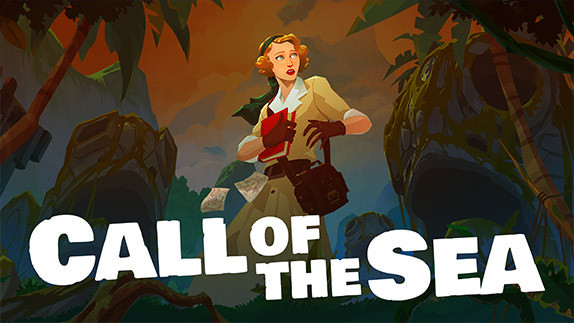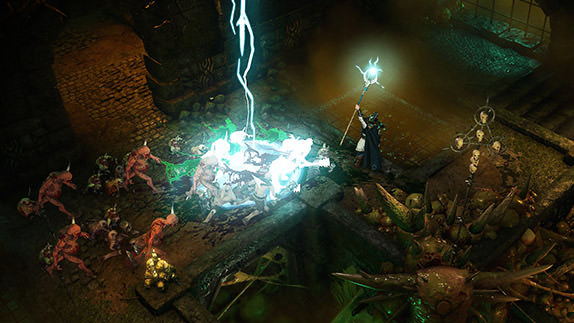Total War: Attila Review

 By Marcus Jones | Posted: March 10, 2015
By Marcus Jones | Posted: March 10, 2015
Total War is a long-running series I've had the fortunate ability to play time and time again. From developer Creative Assembly, the Total War series has spanned some of the greatest ages in history, from medieval Europe, colonial America, and perhaps the greatest – the period of Rome's ascension to the top. Their newest title in the franchise, Total War: Attila, follows the story of Rome's fall from Gothic and Hunnic invasions.
The roster has been pared down somewhat from Rome II. Don't think this means there's no one to choose from as there are still plenty – the two Roman empires (Eastern and Western), Gothic tribes of the Great Migrators, the hordes of Huns, and more. There is already one DLC pack out as well, offering the chance to play as Vikings with another DLC planned containing an additional three clans. Knowing Creative Assembly's track records in regards to DLC, I fully expect to see more down the line.
I went into this initially thinking this was an expansion for Total War: Rome II, however Attila is a brand new, fully-fledged game. It builds upon many of the successes of Rome II, expanding the overall core gameplay the series is known for while maintain the fun and exciting aspects of battle and more. Instead, Attila continues the Rome II core gameplay and expands upon it, adding in more empire and faction management aspects. Previous games made the entire city and empire management muchmust more simple, whereas Attila steps up the challenge. Your control over the faction is incredibly important, helping to quell potential civil wars and other insidious plots.
Clan and city management is handled with a variety of new additions. These include maneuvering political opponents into bad positions, marrying off family, and more. It's also possible to add candidates to other positions as well, strengthening your king and any entourage he may have. I'm not really impressed with the new management requirements though as they were a distraction to the meat of the game. Yes, this has always been a major point within the Total War franchise, but I felt like the management aspects were forced upon me during my game. Yes, I understand, I have to attend to issues within my growing empire, but do I have to sit down and help every small situation? Do I care if my distant granddaughter is married off? No, not really, I'm fairly certain my kingdom can run by itself here and there, especially when I have about a dozen settlements under attack by the Western Roman Empire. Let me focus on some more important matters, please? Creative Assembly did see fit to carry over the province piece of Rome II into Attila, making for some easier city management across entire provinces. Plus it makes it easier to recruit new units.
The newest piece to the game, however, is the Horde ability. Playing off of Attila's Hunnic hordes during the timeframe, players are able to take their armies on the road without having a series of settlements helping them along. Hordes are essentially homeless armies and it's possible to either start as a horde or end up as one after poor management. Not all is lost, thankfully, as Hordes can set up camps as they go. They still have to manage food and other aspects, but it's possible to do this in multiple locations. This can be a major positive for some players, and a negative as enemies benefit from the same horde mechanic. I'm still chasing down one group that went from Norway down to southern Spain, but I don't foresee me meeting them again anytime soon.
Speaking of more important matters, the meat of the game remains mostly unchanged. Combat takes place on battlefields that are generated depending on where you initiate combat. Units can vary in size depending on your game's settings, though the key piece is always the same: decimate your enemy. Attila plays just like any other Total War game in this aspect, though there are some new additions, including a wider variety of units. Once a victory is secured now, players can end the battle at their leisure, which is perhaps the best piece. Previous titles in the franchise made you pick – do you want to play until the bitter end, or do you want to end it now and let half of the enemy army get away? With Attila, if things look like they're pretty much cleared up, and you don't feel like chasing down Mr. Random Spearman in the far corner, you don't have to any longer.
Honestly, I thought I was a decent commander in Total War. I've managed to complete a few campaigns and I always enjoy the challenge, but I'm rethinking my position on that. Attila is challenging. Extremely challenging. I've played the game on the Normal difficulty setting with multiple restarts so far, and have to yet to make it very far into the game. One attempt in particular lasted less than 10 turns before I reached a point of "I'm screwed." The enemy AI in this game is ruthless and will utilize every chance it has to exploit player weaknesses and take them down. I've never seen my armies overrun in such record time. In order to really get anywhere, I had to turn the difficult down to Easy just to get through the first few battles without getting completely destroyed.
Attila is also a beast of a title. It requires a serious machine to run at full settings, but thankfully players still interested in getting into the game can crank down the settings. It loses a lot of its fun, however, since one of the major points of the game is to command massive armies on battlefields. I'm stuck running small scale armies with about 50 people per unit; I recall being able to field 200 previously. It's an unfortunate change, but on a machine with plenty of capability, this game would look amazing.
Simply Put
Total War: Attila is a fantastic game and a must-have for fans of the franchise. The army management and battlefields are still the best piece, but I felt like the clan and empire management aspect has dragged the gameplay down a little compared to earlier titles. A major bonus is the cooperative gameplay has seemingly been fixed. I'm still working on verifying this fully, but previous titles since Shogun 2 has a desynchronization issue with cooperative campaigns, but it seems to have been fixed between Rome II and Attila.
Note: Total War: Attila was reviewed on PC. A digital copy of the game was provided by the publisher/developer.




